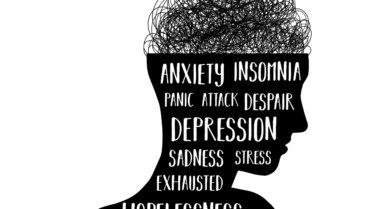In a world where we’re constantly told to focus on our IQ, it’s easy to forget the impact that Emotional Intelligence (EI) can have on our mental health. We live in an increasingly complex and fast-paced environment, which amplifies our emotional reactions and makes it harder to manage them effectively.
But developing EI skills is essential for improving psychological resilience, reducing stress levels, building better relationships with others and ultimately living a happier life. In this blog post, we explore the importance of EI for maintaining mental health and share tips on how you can improve your own emotional intelligence skills.
Introduction to Emotional Intelligence
It has been said that emotional intelligence (EI) is the ability to know, understand, and manage emotions. This definition was first proposed by Peter Salovey and John D. Mayer in 1990 and has since been widely accepted by researchers in the field of psychology.
While there is no single universally accepted definition of emotional intelligence, the ability to perceive, identify, and manage emotions is typically central to most definitions. Emotional intelligence can be used to facilitate better communication and understanding between people. It can also be helpful in managing stress, resolving conflict, and making better decisions.
There is growing evidence that emotional intelligence plays a role in mental health. One study found that people with higher levels of emotional intelligence were more likely to report higher levels of life satisfaction and happiness. Another study found that people with high levels of emotional intelligence were less likely to experience depression and anxiety.
The findings from these studies suggest that emotional intelligence may be a important factor in maintaining mental health. If you are struggling with your mental health, it may be beneficial to seek out ways to improve your emotional intelligence. There are a number of resources available online or through your local library that can help you get started on this journey.
Benefits of Having a High Level of EI
There are many benefits of having a high level of emotional intelligence. Here are just a few:
- EI can help you better understand yourself. When you know your triggers and how to manage your emotions, you can avoid situations that may lead to negative consequences.
- EI can help you better relate to others. When you can read other people’s emotions, you can build stronger relationships based on trust and understanding.
- EI can help you better manage stress and anxiety. By managing your emotions, you can better control your reactions to stressful situations, which will lead to improved mental health overall.
- EI can improve your decision-making skills. When you take your emotions into account, you’re more likely to make sound decisions that benefit both yourself and those around you.
- EI can help boost your career prospects. In today’s competitive job market, employers are increasingly looking for candidates with strong emotional intelligence skills.
How to Strengthen Your Emotional Intelligence
If you want to maintain good mental health, it’s important to work on strengthening your emotional intelligence. Emotional intelligence is the ability to be aware and understand your own emotions and the emotions of others. It also involves being able to regulate your emotions, respond effectively to emotions in others, and create positive relationships.
There are a few key things you can do to strengthen your emotional intelligence:
- Be self-aware. Pay attention to your own emotions and try to label them accurately. Don’t judge or suppress your emotions, just be aware of them.
- Practice mindfulness. Once you become more aware of your emotions, start practicing mindfulness. This means paying attention to the present moment without judgment. Accept your thoughts and feelings as they are and let them go.
- Manage your emotions. Once you’re more aware of your emotions, it’s time to start managing them better. This means learning how to regulate your emotions so you don’t get overwhelmed by them. One way to do this is by using breathing exercises to calm yourself down when you feel anxious or stressed.
- Respond effectively to other people’s emotions. Another important part of emotional intelligence is being able to respond effectively to other people’s emotions. This means being able to empathize with others and understand where they’re coming from emotionally. It also involves being able to keep a cool head and respond in a way that is helpful and supportive.
- Create positive relationships. Finally, learn how to create and maintain positive relationships with others. This means learning how to be emotionally present, listen effectively, and demonstrate understanding and compassion. It also means being able to compromise when necessary and keeping disagreements civil.
By implementing these five strategies into your life, you can start strengthening your emotional intelligence today. This will help you develop more effective relationships with yourself and others, leading to better mental health overall.
What Are the Signs of Mental Health Issues?
There are a number of signs that can indicate someone is struggling with their mental health. It’s important to be aware of these signs so you can provide support and/or get help from a professional if needed.
Some common signs of mental health issues include:
-Withdrawing from social activities or losing interest in things that used to bring joy
-Sleeping too much or having trouble sleeping
-Eating too much or too little
-Losing focus or concentration
-Feeling restless or irritable all the time
- Feeling hopeless, helpless, or worthless
Strategies for Maintaining Mental Health and Resilience
There is no single silver bullet for maintaining mental health and resilience, but there are certain strategies that can be useful for managing stress and promoting well-being. Some of these include:
• Identifying and addressing sources of stress: Make an effort to identify the things in your life that are causing you stress. Once you know what they are, you can start to develop a plan for dealing with them. This may involve making changes to your lifestyle or seeking professional help.
• Practicing self-care: It’s important to take care of yourself both physically and emotionally. This means eating a healthy diet, getting enough sleep, and exercise. It also means taking time out for yourself to relax and do things you enjoy.
• Connecting with others: There is strength in numbers! Connecting with friends, family, or a supportive community can provide essential social support during tough times. These relationships can also offer positive role models and provide opportunities for personal growth.
• Developing a sense of purpose: Our lives have meaning and direction when we have a clear purpose. Take time to think about what makes you feel fulfilled, then use it as motivation to stay focused and on track.
• Taking action: When faced with challenging situations, reach out for help and support. There are many resources available that can provide assistance and guidance on different approaches and strategies.
• Embracing positivity: It’s essential to stay positive even in difficult or stressful times. Think positively, challenge negative thoughts, and focus on the positives in your life – these small steps can lead to big changes!
The Role of Support Systems in Developing Healthy Mental Habits
There are many different types of support systems that can help individuals develop healthy mental habits. Some examples of support systems include family, friends, therapists, support groups, and religious or spiritual organizations. Each type of support system can offer different levels of assistance in developing healthy mental habits.
For example, family members and friends can provide essential emotional support during difficult times. Therapists can teach individuals how to cope with their emotions in a healthy way. Support groups can provide a safe space for people to share their experiences and learn from others who are going through similar challenges. Religious or spiritual organizations can also offer guidance and support for developing healthy mental habits.
No matter what type of support system you have, it is important to remember that you are not alone in your journey to develop healthy mental habits. There are people who care about you and want to help you succeed. With the right support system in place, you can develop the skills and knowledge necessary to maintain a healthy mind throughout your life.
Having a supportive network of people around you is one of the key ingredients for living a healthy, happy life. When faced with challenges along the way, having somebody to turn to for help can make all the difference. Stay connected to your support system and remind yourself that you are never alone!
Conclusion
Emotional intelligence plays an important role in maintaining mental health and well-being. Being aware of your own emotions, managing them effectively and empathizing with the feelings of others are invaluable life skills that help you make better decisions, cope more effectively with stress and have meaningful relationships. Practicing emotional intelligence can provide a powerful way to enhance your mental health by enabling you to process difficult circumstances in a healthier manner and enriching your interpersonal connections.





Add Comment